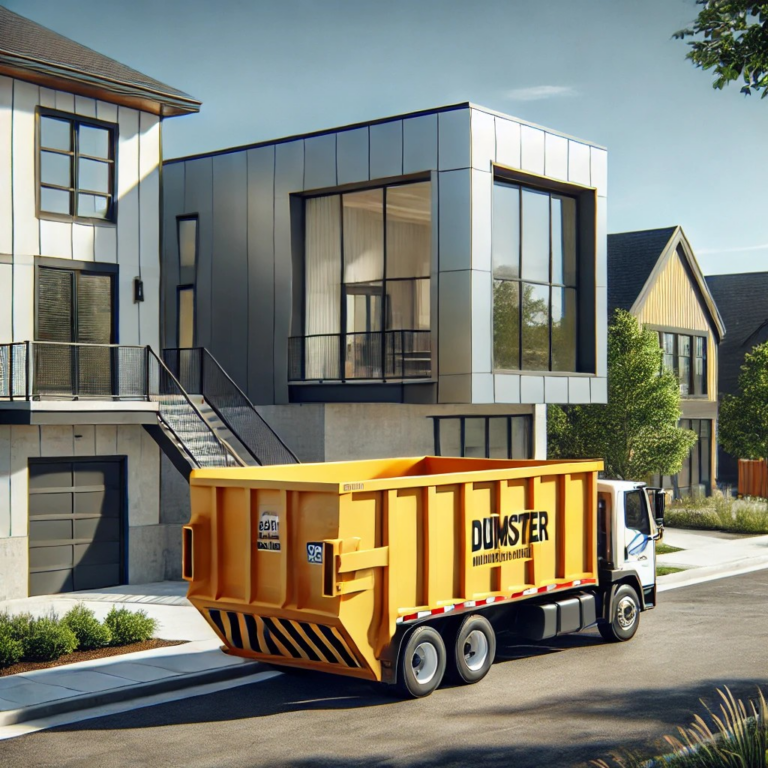The History of Residential Dumpsters in Indianapolis
Environmental Considerations and Residential Dumpsters
The rise in residential dumpster usage has brought several environmental considerations to the forefront. As cities like Indianapolis navigate waste management, the importance of proper disposal methods becomes clear. Landfills continue to pose significant environmental challenges, including the risk of soil and water contamination. Properly managed dumpster services can mitigate these risks by promoting recycling and diverging materials from landfills. Increased awareness of sustainable practices has led many homeowners to choose dumpsters that align with eco-friendly initiatives.
Community engagement has become essential in addressing environmental impact. Many dumpster rental services are now incorporating recyclable options in their offerings, encouraging residents to sort materials before disposal. Partnerships with local recycling centers further enhance the efficiency of waste management. Residents are increasingly informed about their choices, seeking services that prioritize sustainability. This shift reflects a broader movement towards greener living, where the responsible management of waste plays a critical role in urban health and environmental stewardship.
Sustainable Practices in Waste Management
The focus on sustainable practices in waste management has grown significantly in recent years. Communities have started to prioritize recycling and composting initiatives. By reducing the amount of waste that ends up in landfills, these practices contribute to a healthier environment. Many municipalities now provide educational resources to inform residents about proper waste separation. This shift not only enhances waste management efficiency but also promotes community engagement.
Residential dumpster services have adapted to these sustainable trends by offering specialized bins for recycling and organic waste. These bins help residents easily participate in eco-friendly practices. Some companies have begun to implement tracking systems, allowing for a better understanding of waste streams and recycling rates. By incorporating these methods, dumpster services can play a critical role in fostering a culture of sustainability in local neighborhoods.
The Impact of Technology on Dumpster Services
Technological advancements have significantly transformed the landscape of dumpster services, enhancing efficiency and convenience for consumers. GPS tracking systems now allow companies to optimize routes for waste collection, reducing fuel consumption and improving service times. Additionally, mobile applications provide users with real-time updates, enabling them to schedule pickups and monitor the status of their requests. Such innovations have fostered a more responsive approach to waste management.
Automation is also playing an important role in modern dumpster services. Companies are increasingly utilizing smart bins equipped with sensors that monitor fill levels, alerting providers when they need to be emptied. This proactive approach not only minimizes overflow but also helps in planning collection schedules more effectively. The integration of technology has streamlined operations and has made residential waste disposal more efficient, ultimately benefiting both service providers and consumers.
Modern Solutions for Efficient Waste Collection
Advancements in technology have revolutionized waste collection in urban areas. The integration of smart systems into dumpster services enhances efficiency in tracking waste levels. Sensors installed in dumpsters provide real-time data to service providers, allowing them to optimize pickup schedules. This technology reduces the frequency of unnecessary trips, conserving fuel and minimizing emissions. Furthermore, this data-driven approach improves customer satisfaction, ensuring that residents receive timely service tailored to their needs.
Innovative apps and websites have transformed the way residents interact with dumpster rental services. Users can easily locate, book, and manage their dumpster rentals through these online platforms. This convenience streamlines the process of waste disposal, making it more accessible for households. Additionally, many services now offer flexible rental periods and sizes, catering to a variety of projects, from home renovations to seasonal cleanouts. The emphasis on user-friendly solutions aligns with the growing demand for efficient waste management in the community.
Challenges Faced by Dumpster Rental Services
Dumpster rental services must navigate a range of logistical challenges to meet the diverse needs of their clientele. One significant issue is the fluctuating demand driven by seasonal trends or local events, which can lead to either shortages or excess inventory. Ensuring timely pickups and deliveries requires careful scheduling and coordination to avoid disruptions. Additionally, the increasing size of residential projects means that providers must maintain a fleet capable of accommodating larger containers, which can strain resources and operational capacity.
Community concerns about waste management practices also pose challenges to dumpster rental services. Growing awareness of environmental issues has led residents to demand more sustainable solutions. Companies must adapt their offerings to include options for recycling and composting, often requiring additional training and infrastructure. Balancing these customer expectations with the cost of providing eco-friendly services can complicate business operations while trying to remain competitive in a rapidly changing market.
Addressing Community Needs and Logistics
The dynamics of residential areas in Indianapolis have a direct influence on the logistics of dumpster rental services. Different neighborhoods have varied waste disposal needs, influenced by factors such as population density, the type of housing, and local regulations. As communities grow and change, rental services must adapt their offerings to ensure that residents have access to appropriate waste disposal solutions. Understanding these nuances allows companies to optimize their service routes and improve overall efficiency.
In addition to addressing community needs, logistical challenges often arise with the placement and accessibility of dumpsters. Space constraints can limit the size and type of dumpsters available, especially in urban settings. Companies need to consider these aspects while planning for both regular pickups and special events that might generate increased waste. Engaging with local residents and municipal authorities gives these services valuable insights, fostering collaboration and ensuring that waste management supports the unique characteristics of each neighborhood.
Changes in Residential Dumpster Sizes and Availability
The evolution of residential dumpster sizes reflects shifts in consumer needs and urban development trends. Over the years, smaller containers have gained popularity among homeowners seeking efficient waste disposal solutions for routine household tasks. At the same time, larger dumpsters cater to construction or renovation projects, accommodating the increasing waste generated by these activities. This adaptability allows rental services to offer a range of sizes that align with the specific demands of different neighborhoods and projects.
The availability of various dumpster sizes has significantly impacted the way waste management operates in metropolitan areas like Indianapolis. Residents now have more options to choose from, which helps streamline the waste collection process. This flexibility not only enhances convenience but also encourages more sustainable practices, as individuals can select the appropriate size to prevent overfilling and ensure proper disposal. As community needs continue to evolve, dumpster rental services remain responsive, working to maintain a balance between capacity and accessibility.
Adapting to Consumer Demands
Recent years have seen a significant shift in what consumers expect from dumpster rental services. The growing trend towards sustainability has led residents to seek options that align with their environmental values. As a result, companies have responded by offering smaller, more efficient containers that encourage waste reduction and recycling. This adaptation not only meets the needs of eco-conscious customers but also helps to streamline the waste disposal process.
Additionally, customer preference for convenience has driven changes in the availability and size of residential dumpsters. Many services now provide flexible rental periods and on-demand delivery options to accommodate varying project timelines and needs. This responsiveness allows homeowners to select containers that suit their specific requirements, ultimately enhancing the user experience and leading to greater satisfaction with waste management services.
FAQS
What are residential dumpsters used for in Indianapolis?
Residential dumpsters are primarily used for waste disposal during home renovations, cleanouts, or regular garbage collection for households. They provide a convenient way for residents to manage their waste efficiently.
How have environmental considerations influenced dumpster services in Indianapolis?
Environmental considerations have led to the adoption of sustainable waste management practices, such as recycling and reducing landfill waste. Many dumpster services now focus on eco-friendly practices to minimize their environmental impact.
What technological advancements have impacted dumpster rental services?
Technological advancements such as GPS tracking, online booking systems, and smart waste management solutions have improved the efficiency of dumpster rental services, enabling better route planning and customer service.
What challenges do dumpster rental services face in Indianapolis?
Dumpster rental services face challenges such as managing logistics, addressing community needs, and ensuring compliance with local regulations. They must also adapt to fluctuations in demand and competition within the market.
How have residential dumpster sizes changed over time in Indianapolis?
Residential dumpster sizes have evolved to meet consumer demands, with more options available for different types of projects. This includes smaller containers for minor cleanouts and larger ones for extensive renovations or construction work.







